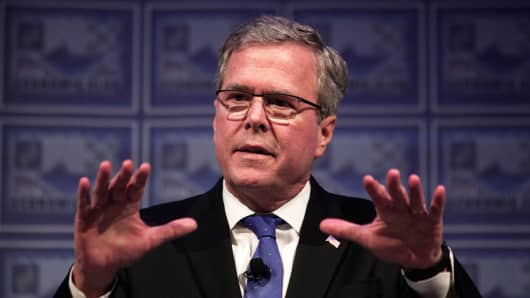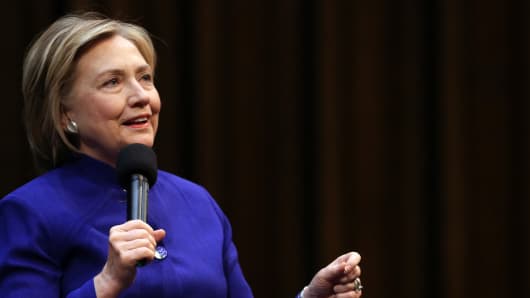In the Supreme Court case King v. Burwell, will the court disallow subsidies for plans purchased on the federal exchange? The impact is huge, not only for Obamacare generally, but acutely for hospital operators and other service providers. Prediction markets were confident (70+ percent) that the administration would lose, until late January, when a raft of amicus briefs were published. Apparently lending convincing support to the government, this triggered a swift selloff and the market now slightly favors the administration.
Equity markets haven't reflected this shift. Health-care provider ETFs like XHS have underperformed in recent weeks, despite the likelihood of significant Affordable Care Act-related impairment now reduced. Key sector components have fared worse. Major hospital stocks likeTenet and HCA Holdings, having thrived under expanded coverage, are underperforming the broader market and XHS. Their investors seem to perceive worsening prospects at the Court, while prediction markets suggest the opposite.
Read MoreGOP surrenders on net neutrality
Also coming to a head is the Keystone pipeline, With President Obama having vetoed the congressional approval, the market sees just a 25 percent chance of a permit this year (down from 50+ percent before the public veto threat on January 6).
Amid oil-complex upheaval, Keystone has a minor influence on sector valuations. But certain service providers and pipeline operators are squarely in the Keystone crosshairs, none more than sponsor TransCanada. Despite a possible double-digit impact of the increasingly likely denial, TransCanada is little changed since January 6, closely tracking its peers. Interestingly, railway stocks like Canadian Pacific andCanadian National (which stand to gain from Keystone's scuttling) do seem to price in dimming prospects, up more than 7 percent over that period, with transportation ETFs and the Canadian market close to flat.
Obama vetoes Keystone pipeline—now what?
When prediction markets suddenly diverge from equity-implied odds, someone's wrong. If prediction markets have it right, they're identifying potentially large,event-driven moves on the horizon. If equity investors are right,traders on markets like PredictIt and Iowa Electronic Markets (IEM) can exploit that divergence.
Commentary by Brandi Travis, a member of the founding team behind PredictIt and Chief Marketing Officer of Aristotle,the political technology firm. Follow her on Twitter @BNTravis.
Disclosure:Neither Brandi Travis nor Aristotle International own shares of of anyof the stocks mentioned in this article.



